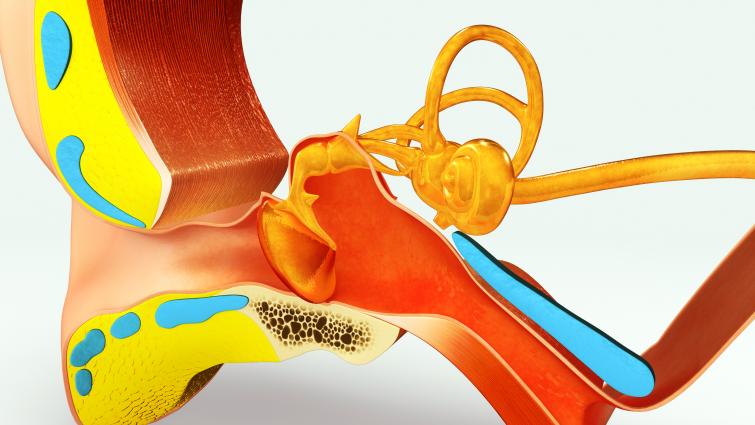
 News
News
Presbycusis: ultra-rare genetic mutations responsible for a quarter of cases occurring around the age of 50
Presbycusis, or age-related hearing loss, involves genetic and environmental factors. A genomic analysis can identify gene variants whose pathogenicity subsequently needs to be confirmed. As a general rule, frequent variants have little or very little effect; it is their cumulative impact in several genes that explains the impairment. Ultra-rare variants, on the other hand, have a strong impact and can result in monogenic forms of hearing loss; they are caused by one or more mutations in a single gene. Scientists investigated cases of presbycusis occurring around the age of 50, some affecting several members of the same family, to look for ultra-rare variants. A quarter of cases presented ultra-rare mutations in genes responsible for hearing loss in children. Their pathogenicity was established by performing complementary analyses, which included introducing the same mutation in mice. These forms of monogenic presbycusis represent promising targets for gene therapy, which was previously only under development for forms of early-onset hearing loss.